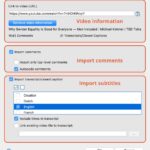The Dodge Journey is a popular crossover SUV, but like any vehicle, it can experience issues with its anti-lock braking system (ABS). One common problem is a faulty ABS module, which can trigger warning lights and potentially compromise braking performance. This article will discuss common symptoms, diagnostic trouble codes (DTCs), potential causes, and solutions for Dodge Journey Abs Module problems.
Understanding the Dodge Journey ABS Module
The ABS module is a critical component of the braking system. It monitors wheel speed sensors and controls the application of brake pressure to prevent wheel lockup during hard braking. A malfunctioning module can lead to a loss of ABS functionality, reduced braking efficiency, and increased stopping distances.
Symptoms of a Failing Dodge Journey ABS Module
Common signs of a failing ABS module include:
- Illuminated ABS and Traction Control Warning Lights: These lights are the most obvious indicators of an ABS issue.
- Diagnostic Trouble Codes (DTCs): A code reader can reveal specific ABS-related codes, such as C2200 (internal module failure) or C0031 (wheel speed sensor issues), which often point to the ABS module as the root cause. U-codes related to lost communication with the ABS module are also common.
- Erratic Braking Behavior: You might experience pulsating brakes, unusual noises, or a spongy brake pedal.
- Speedometer Malfunction: In some cases, a faulty ABS module can disrupt the speedometer’s operation.
Diagnosing Dodge Journey ABS Module Problems
Diagnosing ABS module issues typically involves:
- Retrieving Diagnostic Trouble Codes (DTCs): Using an OBD-II scanner is crucial for identifying specific fault codes stored in the vehicle’s computer. These codes pinpoint the problem area.
- Visual Inspection: Check the ABS module and its wiring harness for signs of damage, corrosion, or water intrusion. Recall R61 addressed a known issue with water entering the ABS module on certain Dodge Journey models.
- Testing Wheel Speed Sensors: Faulty wheel speed sensors can trigger ABS issues and mimic a bad ABS module, so testing them is essential.
Common Causes of Dodge Journey ABS Module Failure
- Water Damage: As mentioned, water intrusion into the ABS module is a known issue and was the subject of a recall.
- Electrical Faults: Short circuits, open circuits, or voltage fluctuations can damage the module’s internal components.
- Corrosion: Exposure to road salt and moisture can corrode connectors and wiring, disrupting communication.
- Internal Component Failure: Over time, internal components within the module can fail due to age, wear, and tear.
Dodge Journey ABS Module Replacement and Repair
- DIY Replacement: Replacing the ABS module is possible for those with mechanical skills. It involves disconnecting the battery, removing the old module, installing the new one, and bleeding the brake system.
- Professional Repair: If you’re not comfortable with DIY repairs, a qualified mechanic can diagnose and replace the module.
Programming and Calibration
After replacing the ABS module, it might require programming or calibration to ensure proper communication with the vehicle’s other systems. Some independent shops have the necessary equipment, but a dealership might be required for certain models.
Addressing Recall R61 for Water Intrusion
If your Dodge Journey was affected by recall R61 and you suspect the ABS module failure is related to water damage, contact your local Dodge dealership. They can verify if the recall work was performed correctly and potentially address any related issues. Documentation of previous recall service is helpful.
Conclusion
A failing Dodge Journey ABS module can be a serious safety concern. Recognizing the symptoms and understanding the diagnostic process is crucial for timely repair. By addressing the issue promptly, you can ensure the proper functioning of your braking system and maintain safe driving conditions. Remember to always consult a qualified mechanic for complex repairs or if you’re unsure about any aspect of the diagnostic or repair process.

